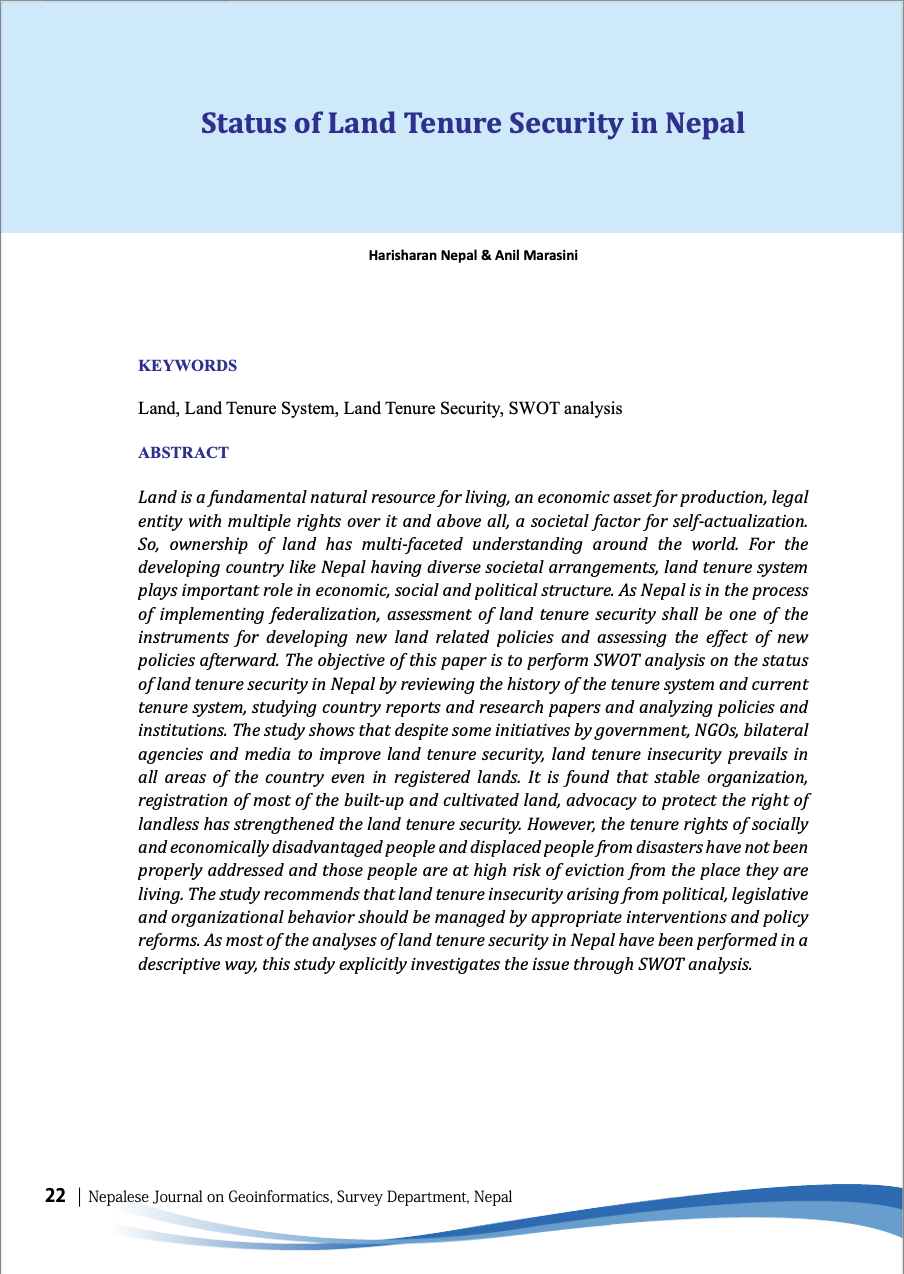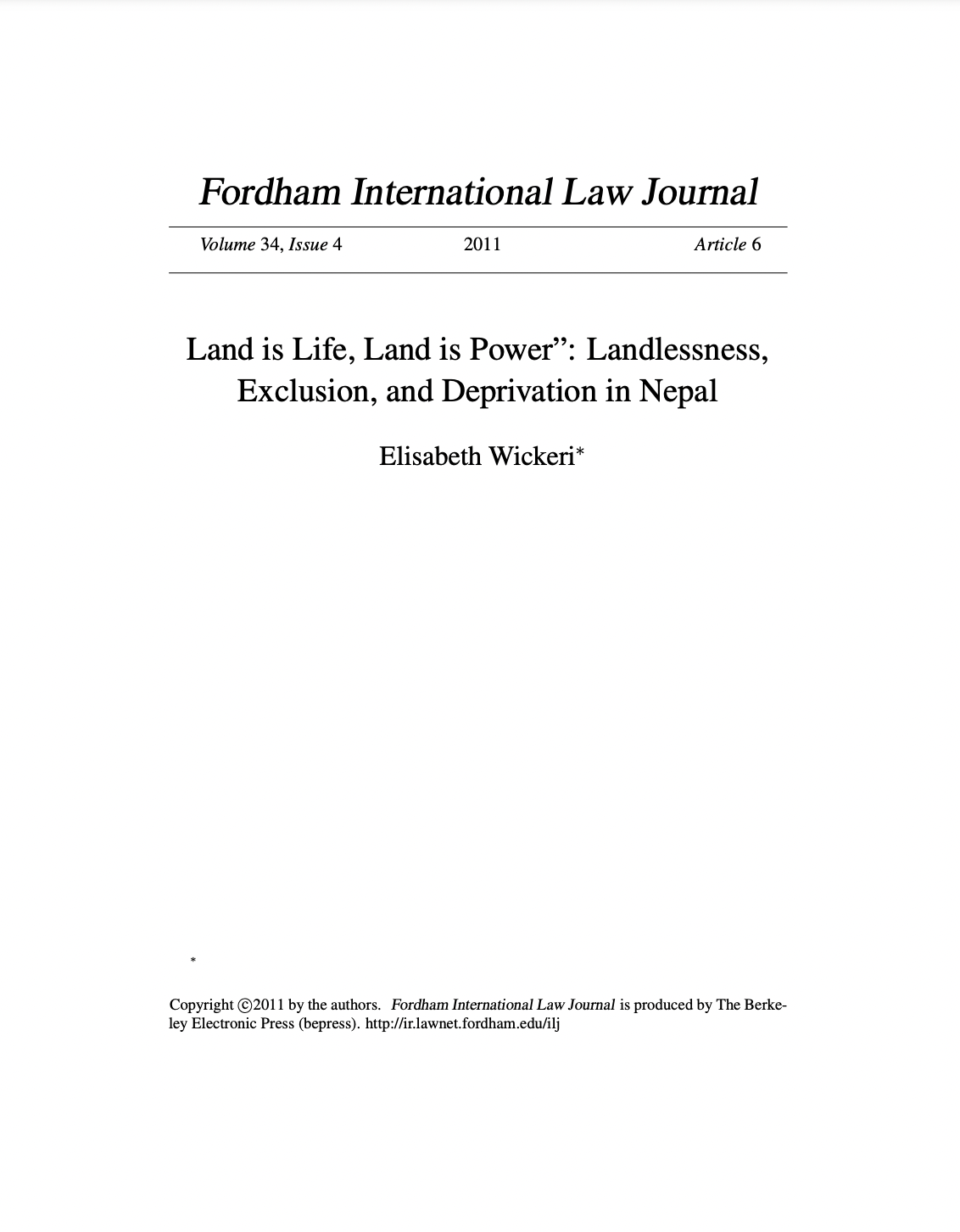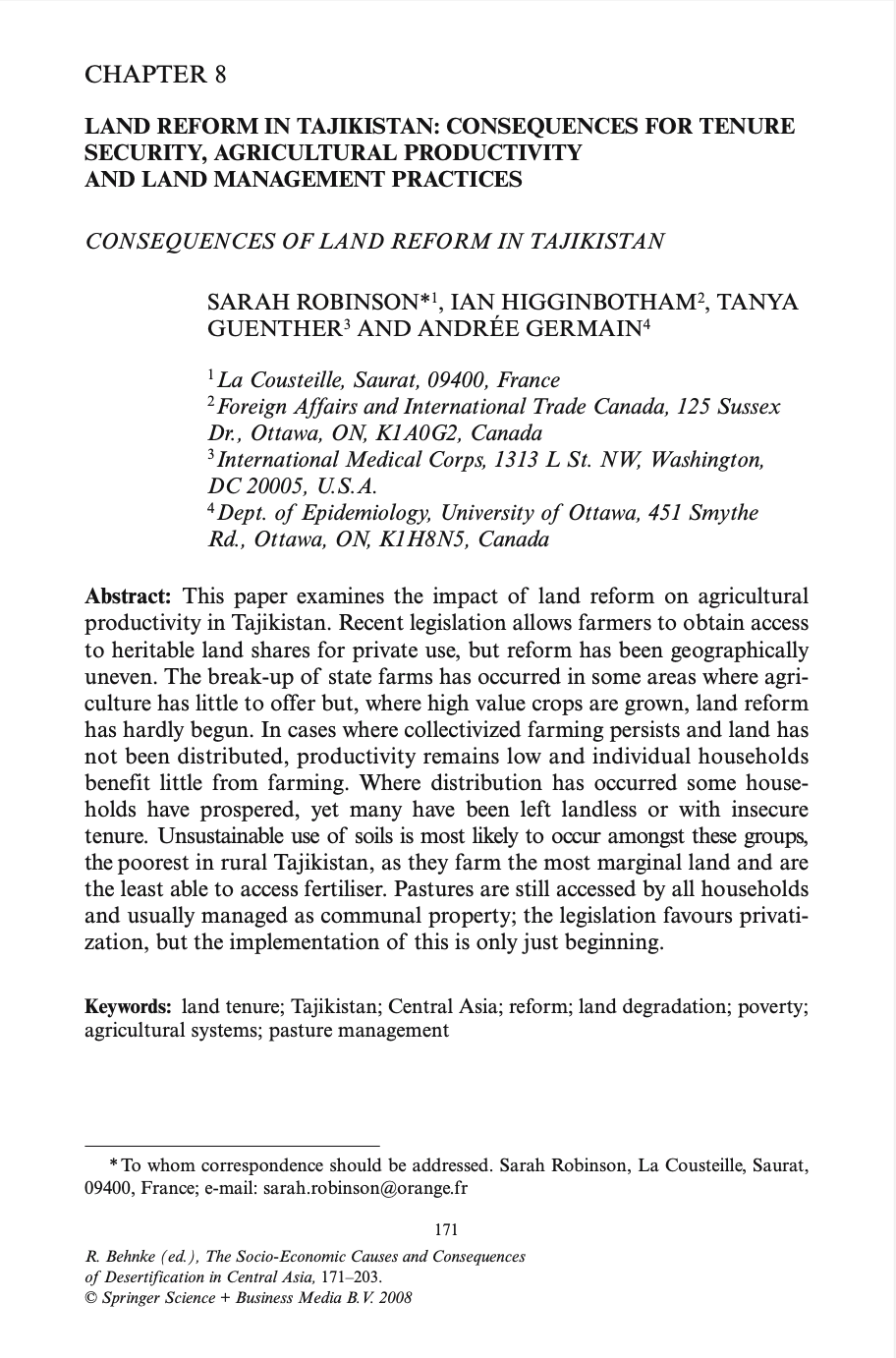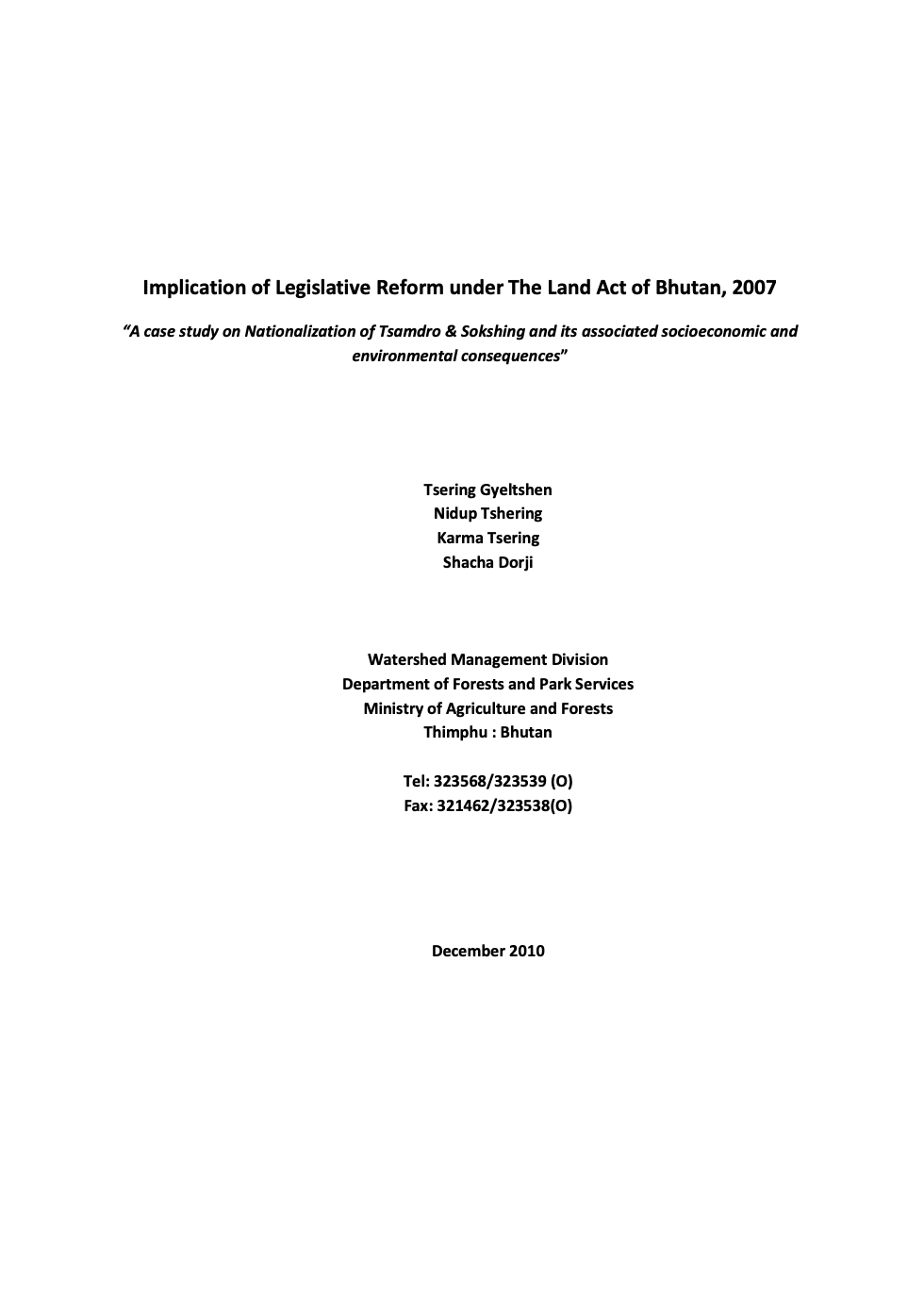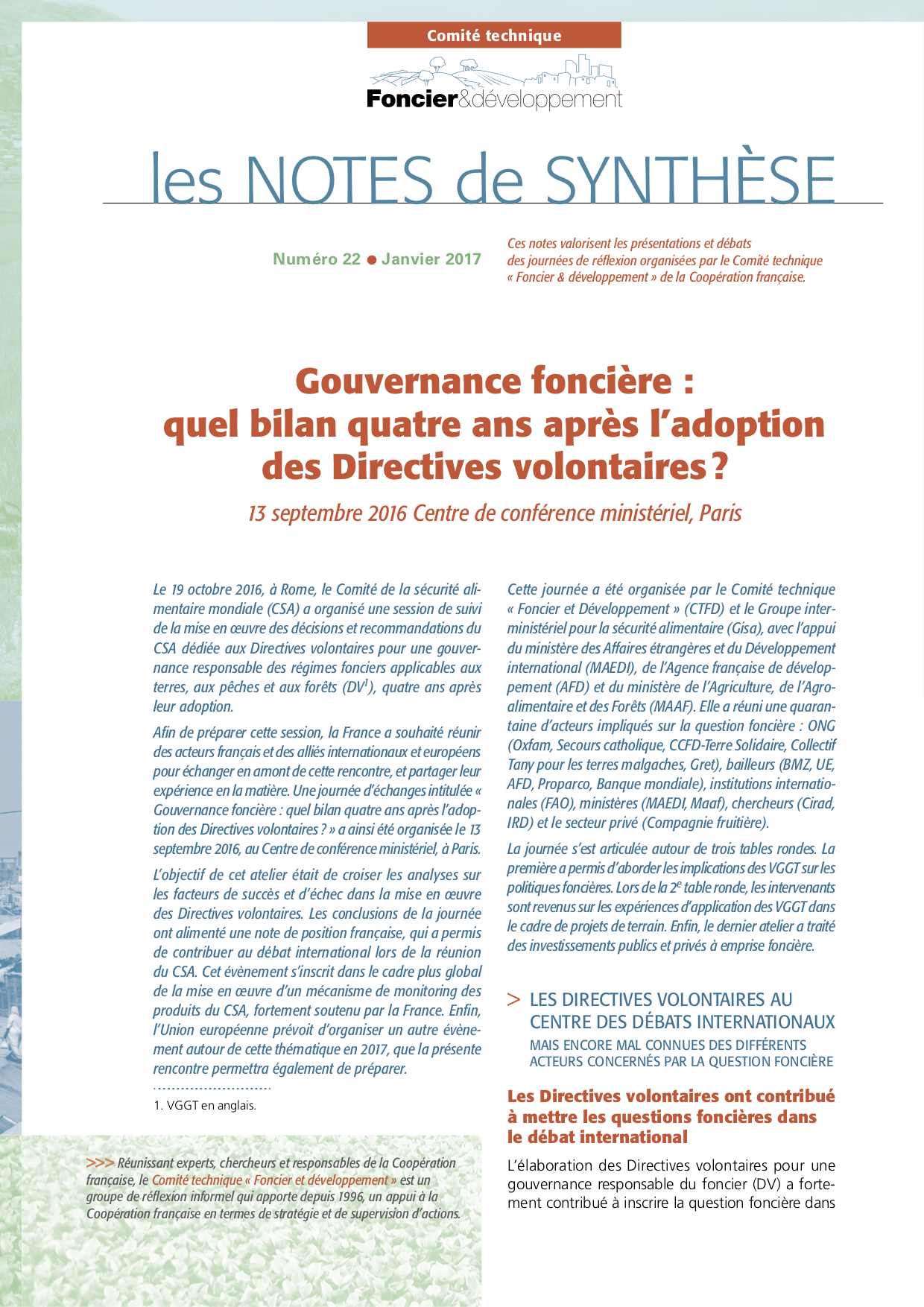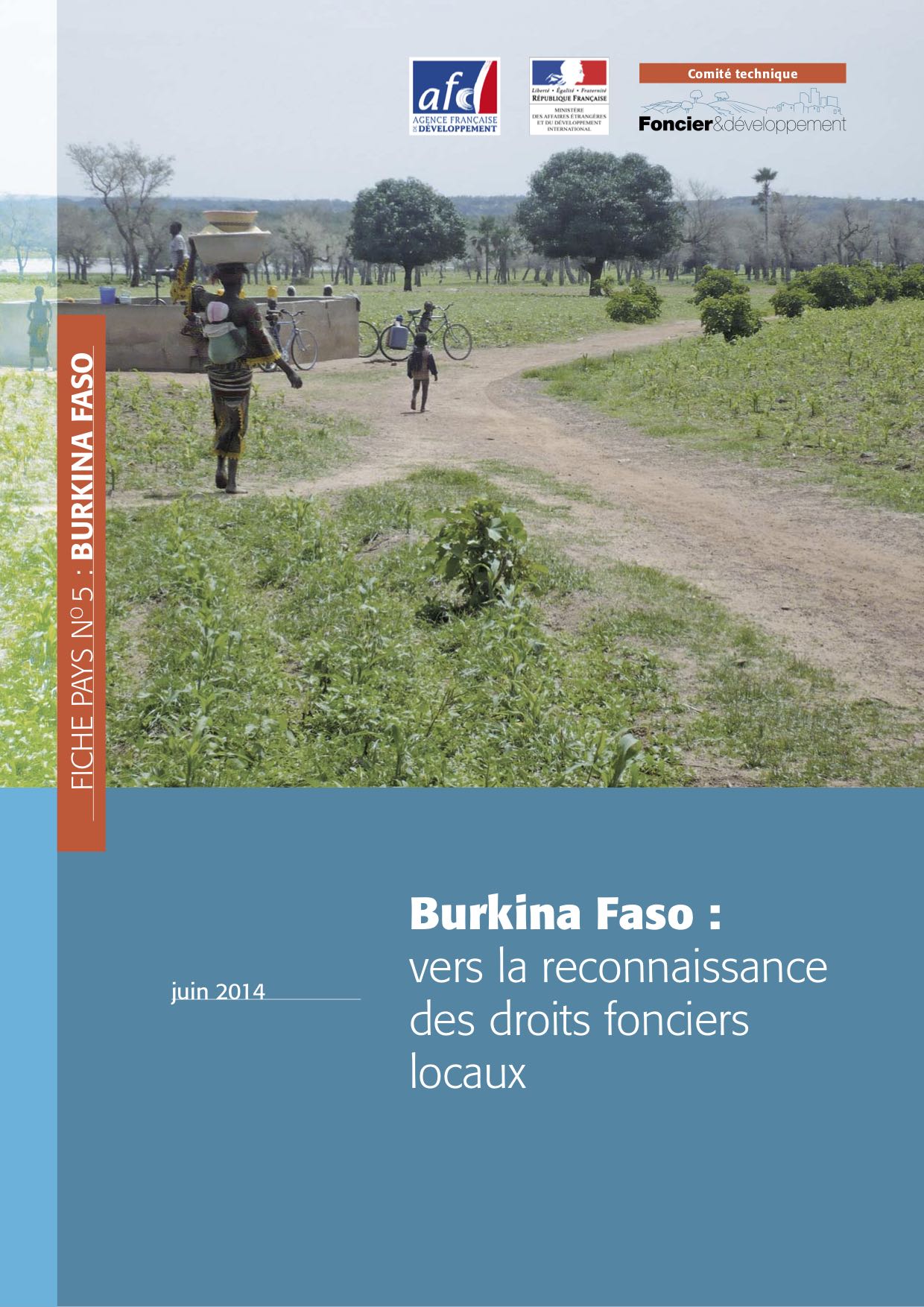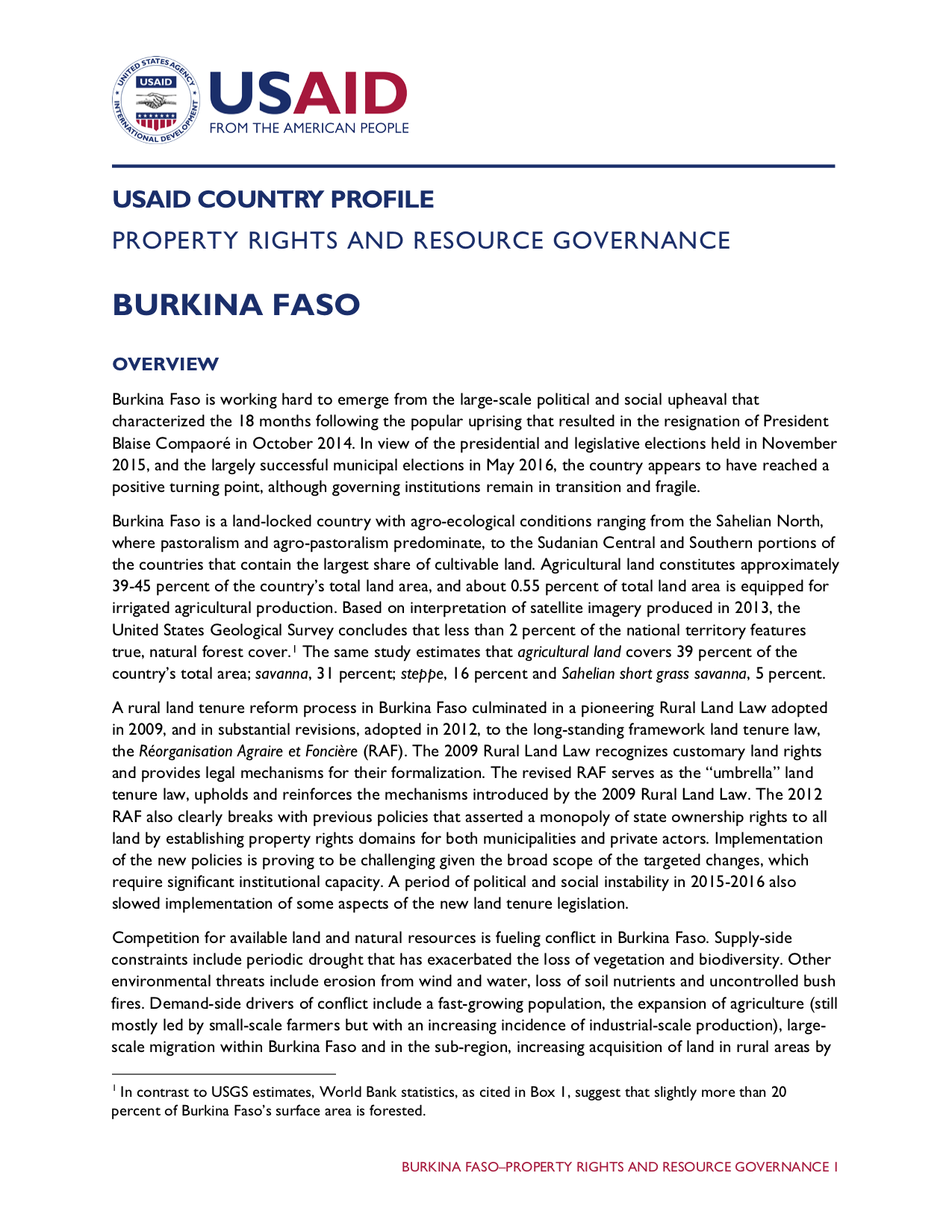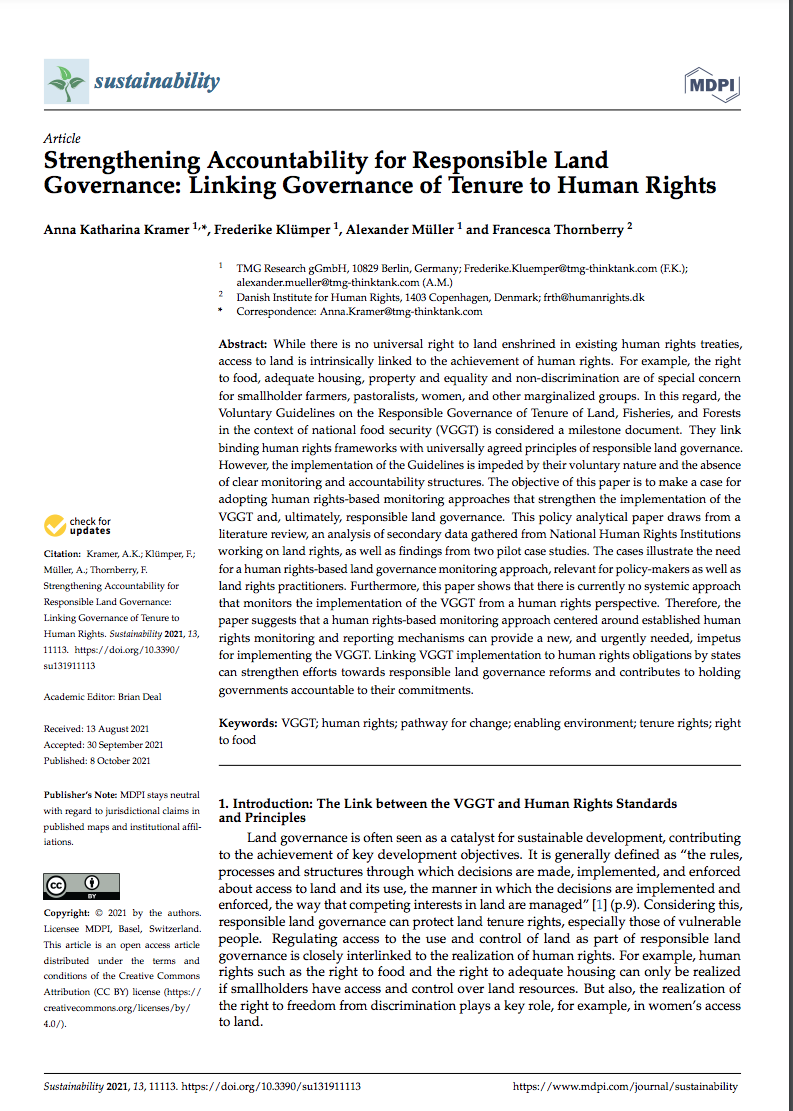Status of Land Tenure Security in Nepal
Land is a fundamental natural resource for living, an economic asset for production, legal entity with multiple rights over it and above all, a societal factor for self-actualization. So, ownership of land has multi-faceted understanding around the world. For the developing country like Nepal having diverse societal arrangements, land tenure system plays important role in economic, social and political structure.

